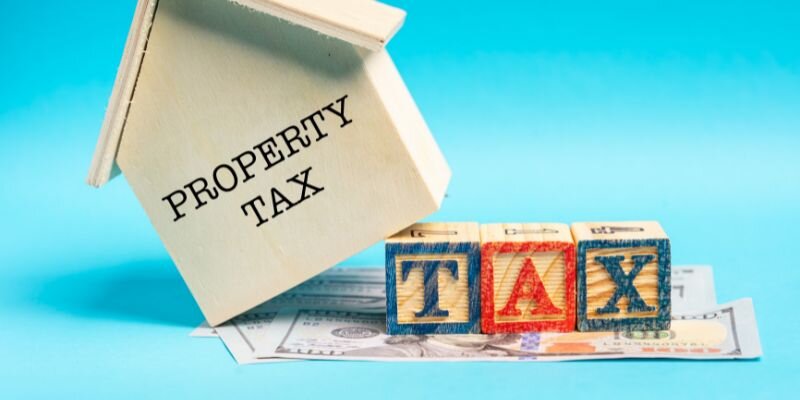
Overview of Plano, TX
Plano, Texas, is a lively city in the middle of Collin County. It has a strong economy and a high quality of life, which makes it a good place to invest in real estate. Plano is one of the fastest-growing communities in the Dallas-Fort Worth area. It has a wide range of properties, from high-end residential areas to commercial real estate options.
The city’s strong infrastructure, top-notch public schools, and lots of green areas make it more appealing to both home buyers and investors. This is where the offices of big companies like Toyota North America and Liberty Mutual Insurance are located. There are also a lot of good jobs in Plano, which keeps the demand for homes high.
Understanding Plano’s property tax rates is essential for maximizing your real estate investment, as these taxes can significantly impact the overall cost of homeownership. To see how our process works, potential buyers can explore ways to navigate these costs more effectively.
The local government provides various exemptions that can offer relief to eligible homeowners, making it crucial to navigate these options wisely when purchasing property in this dynamic Texas city.
Economic Growth and Development in Plano, TX
Plano, TX, is a thriving city known for its robust economic growth and development, making it an attractive destination for real estate investors. A diverse mix of industries, including technology, finance, and healthcare, fuels the city’s strong economy and contributes to a steady demand for housing.
Property values in Plano are being driven higher by the influx of new residents brought about by the city’s planned urban planning and its business-friendly climate, which encourages innovation and entrepreneurship.
Understanding the property tax rates in Plano is crucial for home buyers looking to maximize their real estate investment. Local government initiatives aim to maintain infrastructure and public services that support ongoing development and influence these rates.
Regional offices of large firms, such as JPMorgan Chase and Toyota North America, are located in Plano, which is good for the local economy and helps create jobs. Homebuyers considering this market for the long haul will find that the improvement of community facilities like parks and schools is a key component of a prosperous neighborhood.
Benefits of Living in Plano, TX
Living in Plano, TX, offers numerous benefits, making it an attractive destination for home buyers looking to maximize their real estate investment. This thriving city is known for its excellent education system, top-rated public schools, and proximity to prestigious universities, providing families with high-quality educational opportunities.
Plano also has a strong job market. It is home to the main offices of big companies and has a lot of job opportunities in many fields. The city’s lively communal life is made even better by its many cultural attractions, such as museums, theaters, art galleries, and parks and leisure centers that encourage a healthy living.
Additionally, Plano’s low crime rate contributes to a safe environment for residents. Its strategic location within the Dallas-Fort Worth metroplex provides easy access to urban conveniences while maintaining suburban tranquility.
Potential homeowners looking for a place to call home where their investment can appreciate in value without paying exorbitant taxes will find Plano’s property tax rates to be competitive when compared to other parts of Texas. Overall, Plano is a great place to invest in real estate because of the abundance of options, the high quality of living, and the favorable tax climate. If you’re ready to sell, check out our page on selling your house fast in Plano, TX for quick solutions.
Real Estate Market Trends in Plano, TX

Plano, TX, has been experiencing significant real estate market trends that are crucial for potential home buyers to understand, particularly in the context of property tax rates. The city boasts a robust housing market, characterized by increasing property values and a steady demand for homes.
Plano’s thriving economy, excellent schools, and appealing suburban lifestyle, which make it an attractive destination for families and professionals, are responsible for this growth. However, with rising home prices comes the challenge of navigating higher property tax rates, which can impact overall investment returns.
Buyers should pay close attention to these taxes as they evaluate properties and consider long-term affordability. Understanding these market dynamics is essential for maximizing real estate investments in Plano and ensuring a successful purchase strategy amidst fluctuating economic conditions.
Future Projections for the Housing Market
Plano’s home market looks good for investors because the economy is growing quickly and there are more jobs available. Plano is one of the most sought-after cities in Texas, so it continues to bring in both companies and people looking to live there. This increases the demand for homes.
Because of this demand, real estate prices are expected to steadily rise over the next few years. But people who want to buy a house should keep an eye on local property tax rates, since they can affect the overall return on their investment.
Although current tax rates are relatively stable, shifts in local government policies or increases in assessed property values could affect future tax obligations. Staying informed about these changes is crucial for maximizing your real estate investment in Plano.
Researchers can benefit from a better understanding of the dynamics of population growth and urban development plans when trying to predict how the housing market may evolve. Investors can make better decisions about buying property in this thriving Texas city if they keep an eye on these characteristics.
Understanding Property Tax Rates
Understanding property tax rates is crucial for maximizing your investment in Plano, TX. In this thriving city, property taxes are determined by the property’s assessed value and the local tax rate set by various taxing entities such as the school district, county, and municipal government.
For home buyers in Plano, navigating these tax rates can significantly impact their investment’s profitability. The appraisal district assesses property values annually based on market conditions, which means fluctuating property values can lead to changes in the tax bill.
It’s crucial to keep yourself updated on the latest rates and any applicable exemptions, such as those for seniors or homesteads, that can lead to substantial savings. Property marketers in Plano may make better selections, possibly lower their tax burden, and ensure a solid financial strategy for their assets if they grasp how these aspects interact within the real estate market.
History of Property Tax Legislation in Texas
Texas has a long history of passing property tax laws that have big effects on real estate investments, especially in Plano and other nearby cities. The state does not have a property tax, so it is up to local officials to decide how much to charge for services like public safety and education.
This decentralized system has its roots in the Texas Constitution, which grants local taxing authorities significant autonomy. Various legislative changes over the years have shaped the assessment and collection of property taxes.
To make sure that property assessments were fair and consistent across counties, appraisal districts were introduced in 1979. To promote openness and responsibility, amendments such as the “Truth in Taxation” statutes mandate that taxing agencies inform taxpayers of any planned rate hikes.
These developments demonstrate the need for home buyers and real estate investors in Plano to stay informed about evolving tax policies that can affect their investment returns and financial planning strategies.
How Property Taxes Are Calculated in Texas
Property taxes are a significant consideration for real estate investors and home buyers in Texas, particularly in rapidly growing areas like Plano. Understanding how these taxes are calculated is paramount to maximizing your real estate investment.
Property taxes in Texas are based on the appraised value of your property, which local appraisal districts determine annually. The assessed value serves as the foundation for calculating your property tax bill.
Each taxing authority, such as school districts, cities, and counties within Plano, applies its specific tax rate to this assessed value. These are millage rates, expressed in dollars per $100 of assessed valuation.
If people who want to buy a home in Plano want to understand how the property tax system works, they need to know about any changes in appraisal values and local tax rates. Also, homestead exemptions can lower taxable values of qualified properties by a large amount, which can save people money and make investments more profitable.
Factors Affecting Property Tax Rates

Understanding the factors influencing property tax rates in Plano, TX, is crucial for home buyers when considering real estate investment. Several key elements, including assessed property value and local government budget needs, determine property tax rates in Plano.
To make sure that taxes are in line with current valuations, the appraisal district does an annual market evaluation of properties. Public services like schools, infrastructure projects, and emergency services, as well as local tax policy, have a substantial impact on these rates.
Economic conditions can also impact property taxes; for instance, increased demand for public amenities may lead to higher taxation to support community enhancements during economic growth periods. Furthermore, exemptions and abatements offered to certain homeowners can affect overall tax obligations.
Investors may make smart choices when buying property in this growing Texas metropolis if they know how these factors work.
Comparative Analysis of Texas Cities’ Tax Rates
When investing in real estate in Texas, conducting a comparative analysis of property tax rates across various cities is essential to maximize returns. Plano, TX, known for its thriving economy and desirable living conditions, presents unique opportunities when navigating property taxes.
Prospective homeowners looking for a good deal may find Plano’s property tax rates to be more attractive than those of other Texas towns like Dallas, Austin, and Houston. Plano strikes a good mix of affordability and proximity to good schools and urban infrastructure, in contrast to Dallas’s typically higher tax rates.
In contrast, Austin’s rapid growth has increased property values and, consequently, higher taxes. Houston’s diverse market also reflects varied tax rates depending on the specific neighborhoods.
Understanding these differences is crucial for investors aiming to optimize their real estate portfolios. For example, exploring options like selling your house fast in Irving, TX alongside Plano helps homeowners compare markets and make informed decisions tailored to their financial goals.
Homebuyers can make informed decisions tailored to their financial goals in the vibrant Texas real estate market by analyzing each city’s tax structure, distinctive characteristics, and potential investment benefits.
Recent Changes to Plano’s Property Tax Policies
Recent changes to PPlano’s property tax policies have significantly impacted real estate investments, making it crucial for home buyers to stay informed. Plano has recently adjusted its property tax rates in response to evolving economic conditions and community needs.
These adjustments aim to balance the demands of public services to maintain a competitive market for potential home buyers. Understanding these changes is vital, as they directly influence the overall cost of owning property in this thriving Texas city.
Homebuyers should pay close attention to the new assessment values and exemptions that could affect their investment strategies and long-term financial planning. By comprehending how these modifications impact property taxes, investors can better navigate the real estate landscape in Plano, ensuring that their investments remain sound and profitable amidst dynamic fiscal policies. For personalized guidance, don’t hesitate to contact Ready House Buyer to discuss your options.
Which City Has the Highest Property Taxes in Texas?

Understanding property tax rates is crucial when exploring real estate investment opportunities in Texas, especially for potential home buyers considering Plano. At the same time, Plano offers a vibrant community and robust economy; it’s important to note that it does not have the highest property taxes in Texas.
That distinction typically belongs to cities like El Paso or San Antonio, which often report higher effective property tax rates than other areas. Property taxes vary significantly across Texas cities due to local government budgets and school district funding requirements.
For those focused on maximizing their real estate investment in Plano, comparing these rates with other regions while factoring in the overall cost of living and potential return on investment is essential. Understanding where Plano stands among cities with the highest property taxes can offer tactical ideas for making informed purchasing decisions and optimizing financial outcomes.
Helpful Plano Blog Articles
- Discover The Real Estate Charm: Fascinating Insights Into Plano, TX
- Is Plano, TX, The Ideal Location For Your Next Home?
- Exploring Plano, TX: A Comprehensive Guide To Neighborhoods And Real Estate Opportunities
- Prime Opportunities For Selling Your Home In Plano, TX
- Prevent House Foreclosure In Plano, TX
- Affordable Housing Options In Plano, TX
- Successfully Sell Your Plano, TX, Home Without A Realtor
- Exploring Plano, TX: Top Neighborhoods
- Explore Kid-friendly Adventures In Plano, TX
- Top-rated Property Managers In Plano, TX
- Free Community Activities And Attractions Near Homes In Plano, TX
- Navigating Plano, TX, Property Tax Rates For Home Buyers

| LEVIES | TAX SYSTEM | TAX PAYMENT | PLANO, TEXAS | EFFECTIVE TAX RATE | COLLIN COUNTY, TEXAS |
| COLLIN COUNTY, TX | HOME APPRAISAL | AVERAGE | TAX ASSESSMENT | CALCULATOR | ZIP CODE |
| MORTGAGE | DALLAS COUNTY | COLLIN COUNTY APPRAISAL DISTRICT | U.S. | SUBURBAN AREAS | SUBURBS |
| PLANO ISD | MCKINNEY | HARRIS COUNTY | MEXICAN | MEXICO | MEDIAN |
| CITIES OF FORT WORTH | TARRANT COUNTY |
